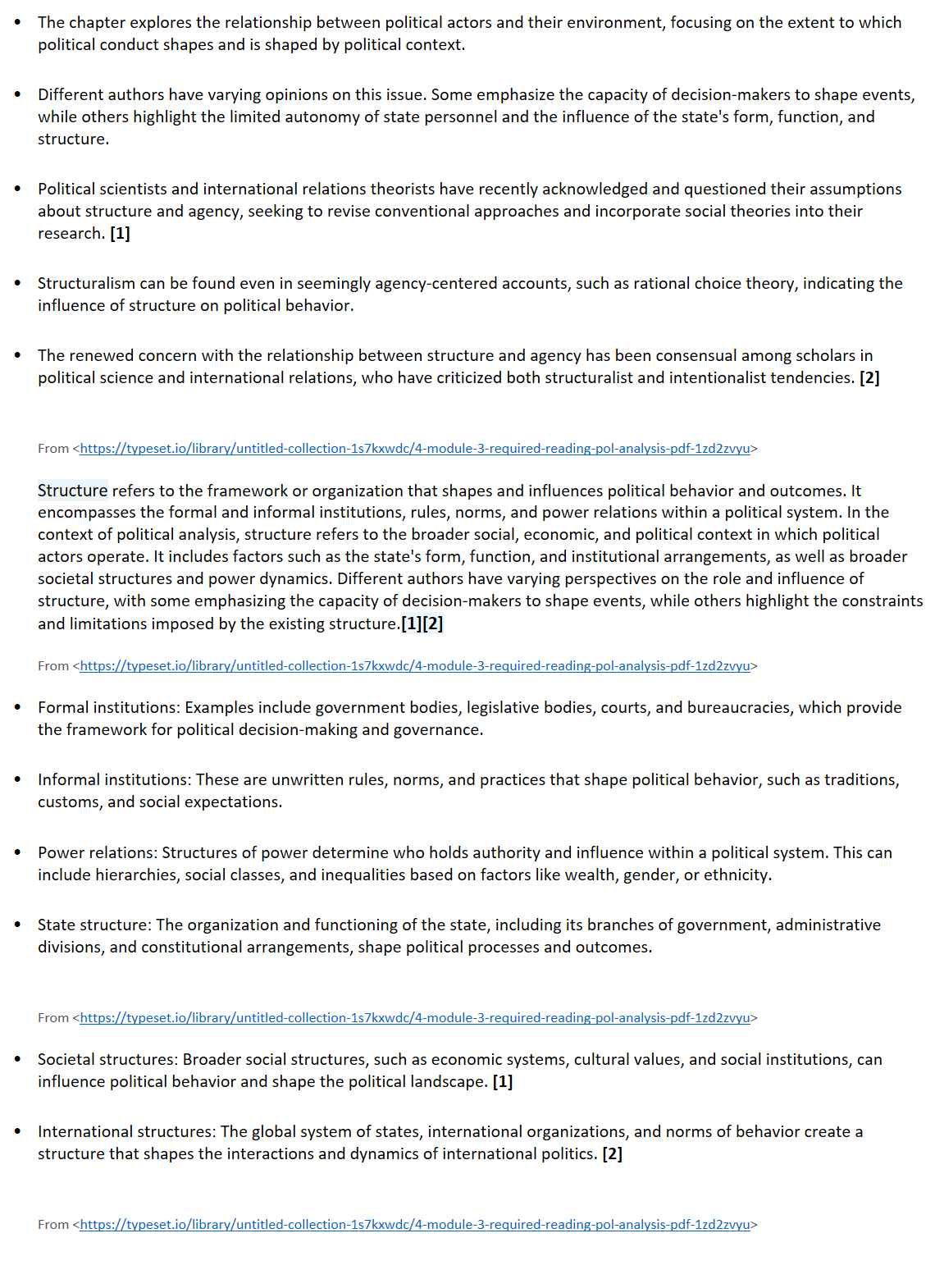MODULE 4 POS 3113

Agency refers to the capacity of individuals or groups to act and make choices within a given social or political context. It is the ability to exercise power, make decisions, and influence outcomes. In the context of political analysis, agency refers to the actions and choices of political actors, such as politicians, interest groups, or social movements, that shape political processes and outcomes. It is the opposite of structural determinism, as it emphasizes the role of human agency in shaping political behavior. Different authors have varying perspectives on the extent of agency and its relationship with structure. Some emphasize the autonomy and capacity of decision-makers to shape events, while others highlight the constraints and limitations imposed by the existing structure on the agency of individuals or groups.
• Political leaders making policy decisions based on their own beliefs and values.
• Social movements organizing protests and advocating for change.
• Interest groups lobbying for specific policies or influencing political decision-making.
• Citizens participating in elections, voting, and engaging in political activism.
• Individuals exercising their freedom of speech and expression to voice their opinions on political issues.
• Diplomats negotiating treaties and agreements on behalf of their countries.
• Activists using social media platforms to mobilize support and raise awareness about political causes.
• Political candidates running for office and campaigning to win elections.
• Journalists investigating and reporting on political events and holding politicians accountable.
• Citizens engaging in civil disobedience to protest unjust laws or policies.
Dissents of Structure versus Agency:
• Some authors, such as pluralists and elite theorists, emphasize the capacity of decision-makers to shape political events, giving more weight to agency over structure.
• On the other hand, more structuralist authors, including institutionalists and neo-Marxists, highlight the limited autonomy of political actors and the constraints imposed by the structure of the state itself, giving more importance to structure over agency.[1]
• The debate between humanist and structural Marxism, exemplified by E. P. Thompson and Louis Althusser, respectively, showcases the polarizing opposition between agency and structure.
• Anthony Giddens and other social theorists argue for a dynamic and dialectical understanding of the relationship between structure and agency, where both influence and shape each other.
• Marx's perspective on structure and agency suggests that while agents shape the world they inhabit, the context or circumstances in which they act also affect their ability to do so.
• Recent literature on structure and agency has sought to move beyond the opposition of structure versus agency and explore the interplay and mutual influence between the two.[3]